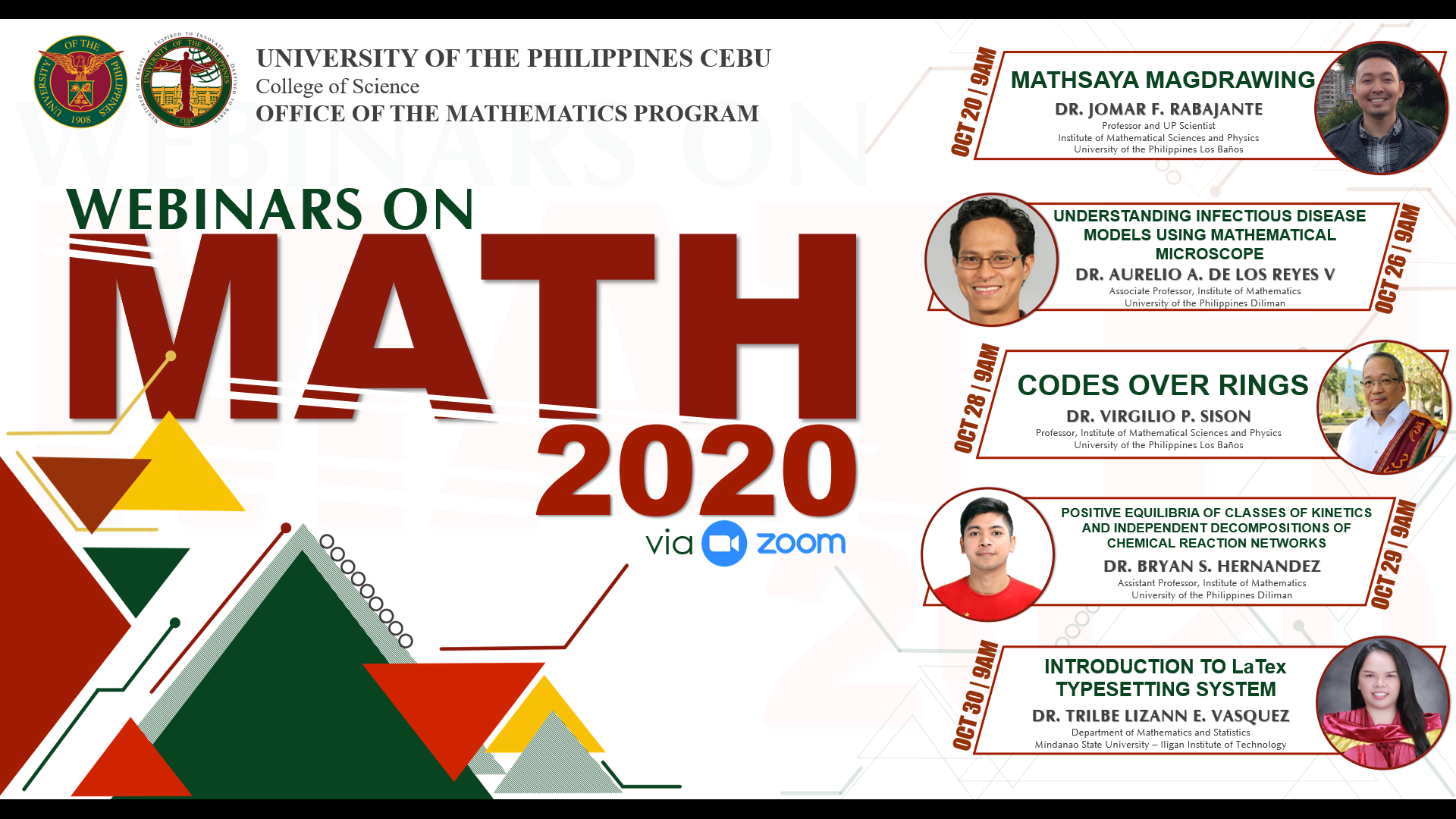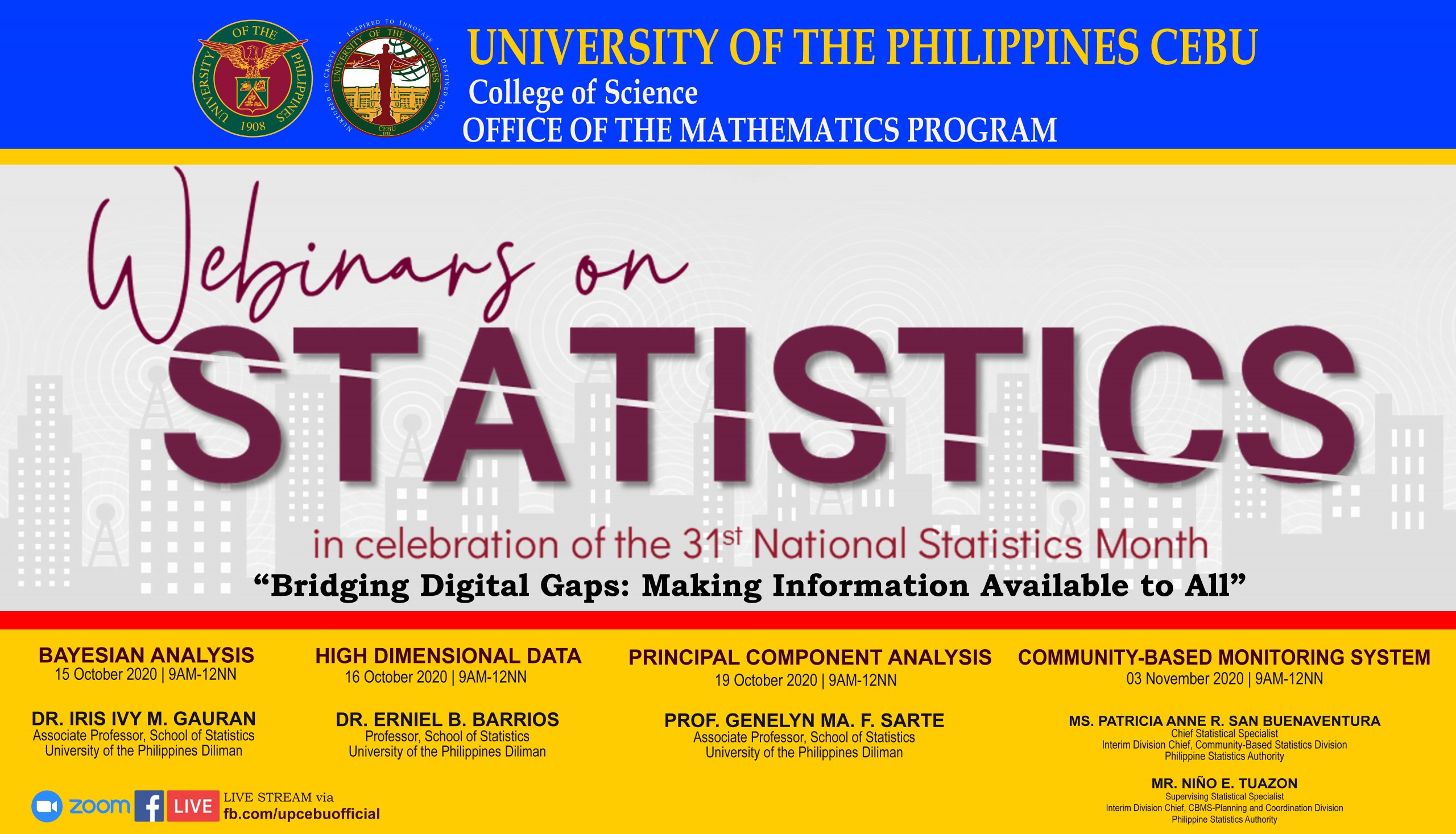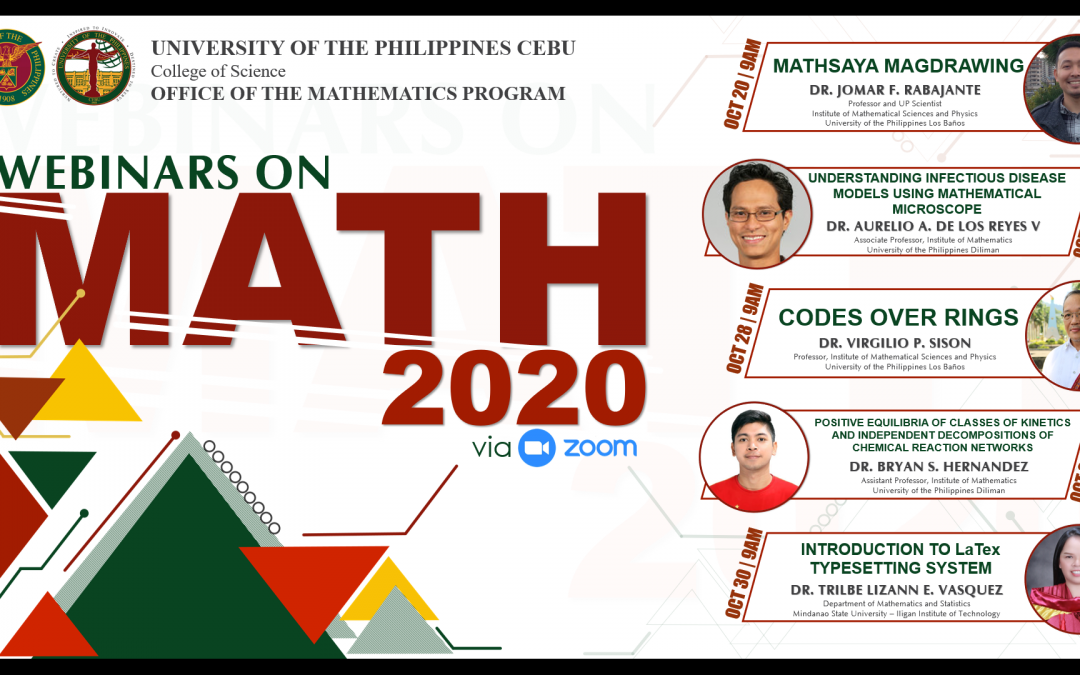

By Prof. Ramises Manzano
The month of October 2020 had been a month of webinars for the Mathematics Program of the College of Science of UP Cebu. A total of eight (8) webinars were conducted, four (4) webinars in Statistics and four (4) webinars in Mathematics. These webinars were conducted via Zoom video conferencing and were broadcasted live through the official Facebook page of the College of Science with the help of the UP Cebu Information Technology Center (ITC) personnel.
The webinars in Statistics were so timely since October 2020 is the 31st National Statistics Month Celebration with the theme “Bridging Digital Gaps: Making Information Available to All”. Some topics in the webinars are Bayesian Analysis by Dr. Iris Ivy M. Gauran of the School of Statistics of UP Diliman, High Dimensional Data by Dr. Erniel B. Barrios of the School of Statistics of UP Diliman, and Principal Component Analysis by Prof. Genelyn Ma. F. Sarte of the School of Statistics of UP Diliman. The three (3) webinars mentioned above were conducted on October 15, 16, and 19 respectively. The fourth and the last topic for the statistics webinar was Community-Based Monitoring System which was delivered by two specialists from the Philippine Statistics Authority (PSA), namely, Ms. Patricia Anne R. San Buenaventura and Mr. Niño E. Tuazon.
All the webinars in statistics went well. Each webinar was attended by almost a hundred people from different universities and government agencies across the country. Questions from zoom participants and on Facebook live were entertained and answered by resource speakers. Moreover, the talk on Bayesian Statistics opens a new research opportunity to the faculty and researchers since only a few are doing researches in this field of statistics.
On the other hand, interesting topics were also delivered during the webinars in mathematics. The topics for these webinars are Mathsaya Magdrawing by Dr. Jomar F. Rabajante of the Institute of Mathematical Sciences and Physics of UPLB, Understanding Infectious Disease Models Using Mathematical Microscope by Dr. Aurelio A. de los Reyes V of the Institute of Mathematics of UP Diliman, Codes Over Rings by Dr. Virgilio P. Sison of the Institute of Mathematical Sciences and Physics of UPLB, Positive Equilibria of Classes of Kinetics and Independent Decompositions of Chemical Reaction Networks by Dr. Bryan S. Hernandez of the Institute of Mathematics of UP Diliman, and Introduction to LaTex Typesetting System by Dr. Trilbe Lizann E. Vasquez of the Department of Mathematics and Statistics of MSU-IIT. The four (4) webinars mentioned above were conducted on October 20, 26, 28, and 30 respectively.
The talk on Understanding Infectious Disease Models Using Mathematical Microscope is very interesting as we are currently facing the present COVID-19 pandemic and thus giving us an understanding of how these mathematical models are constructed. The webinar on LaTeX and beamer was also attended by some BS Mathematics students who will be doing their theses. This webinar has contributed to the faculty and students the necessary skills in typesetting and preparation of manuscripts for future researches to be published.
With the eagerness and positive comments from participants who have attended the webinar-series, the Mathematics Program Office is looking forward to more helpful and interesting webinars in the next year.


Recent Comments